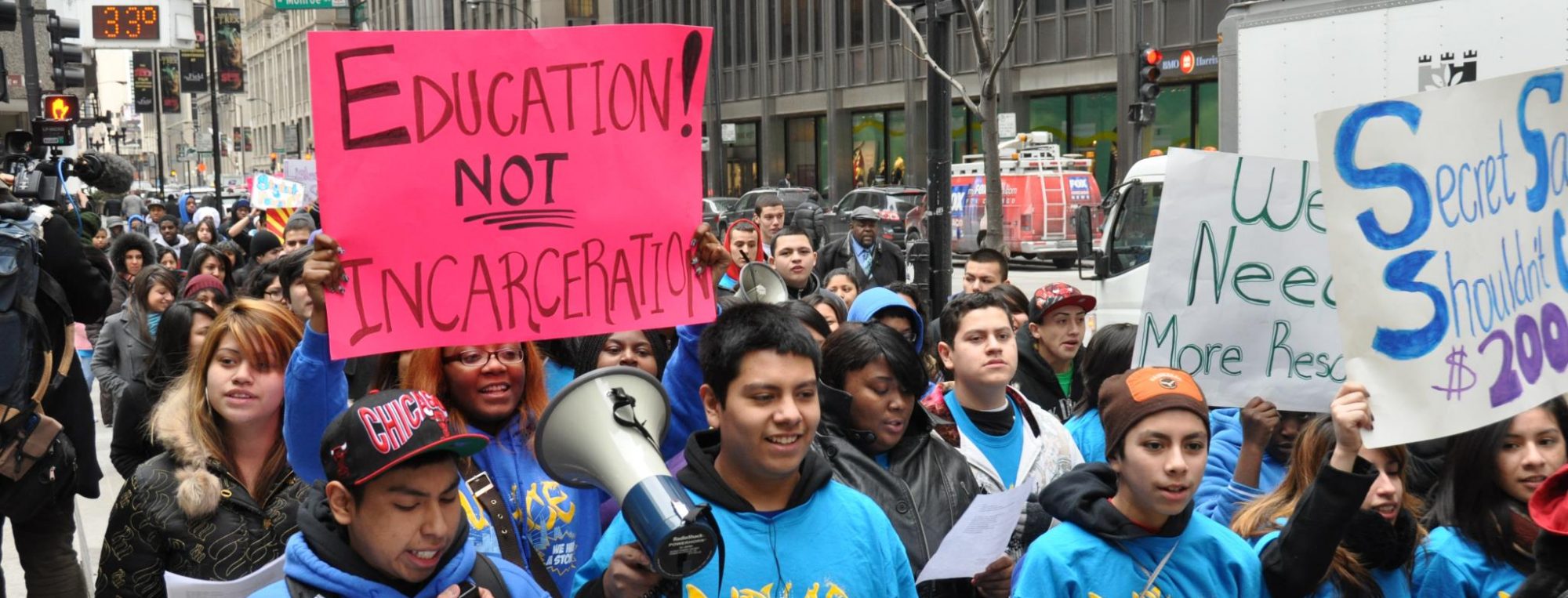According to their website, VOYCE is made up of over 250 young leaders from Chicago and employs a development model that “builds the capacity of young people to:
- Engage as life-long learners, thinking critically about the world around them, and developing a strong racial and social justice analysis of issues impacting their lives, schools, community and city.
- Build strong relationships and common goals across race, ethnicity, religion, gender, and sexual orientation.
- Learn, practice and develop essential leadership skills such as public speaking, research, critical writing, facilitation, team-building, messaging, meeting and negotiating with public officials, reflection, and strategic thinking.
- Set short- and long-term goals for themselves, successfully transitioning to college and future careers” (VOYCE 2015).
This framework provides the most in depth look at the ways in which VOYCE leadership approaches individual and organizational development.
According to members of VOYCE, the organization employs a “participatory action research model,” directed by student leaders (Voices of Youth, n.d.). This model focuses on peer-to-peer research through which student leaders “envision improved schools and learning environments, develop survey questions based on their own educational experiences, identify appropriate data collection methods, perform ethnographic mapping of school communities, make site visits to successful school in Illinois and across the country, review relevant literature, and triangulate all data and responses to identify common themes and perspectives” (Voices of Youth, n.d.). Ultimately, according to VOYCE’s facebook page, it seems as though many public undertakings by the group are promoted by young leaders in the group, including speaking with politicians, being featured in news segments, and participating as panelists in conversations with other activists and educators. In a video made in 2015 around the work of VOYCE, footage of a meeting shows a casual environment in which students can come together to hang out, as well as develop these action plans to achieve their intended goals (“VOYCE 2015”). These strategies together have enabled the creation of a successful student-run organization in which adults are able to serve a more limited, neutral role (VOYCE 2015).
In addition to more formal channels of action, including conducting research and pressuring political actors to become active participants in the fight against the school and prison nexus, VOYCE makes frequent use of its social media, including twitter and facebook, to provide updates on its work, share educational information, involve community members, and stay active in its organizing efforts even as coronavirus ravages the city of Chicago.
